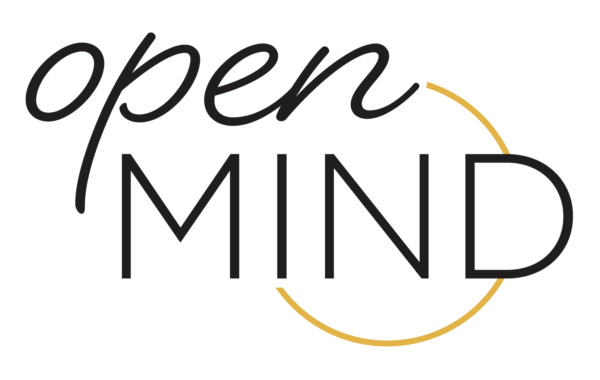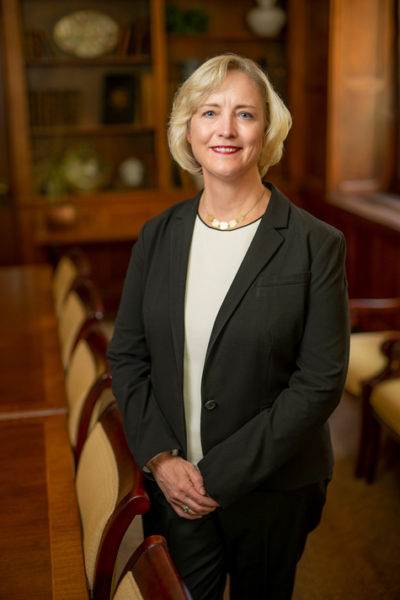 I have often found that life’s more unexpected moments can shape us the most. When asked about my own career trajectory, I am quick to remember the “zigzags”—the unpredictable turns and often-circuitous routes that have led me to where I am today. As I referenced in my December 2019 Open Mind, one example that stands out is the life-changing opportunity I was given to serve as your interim chancellor when Chancellor Emeritus Zeppos stepped down. Little did I know then, nor did any of us know, what we would face this spring. While not part of my original plan, the unexpected shifts have widened my perspective and my grasp of what is possible for us as a university.
I have often found that life’s more unexpected moments can shape us the most. When asked about my own career trajectory, I am quick to remember the “zigzags”—the unpredictable turns and often-circuitous routes that have led me to where I am today. As I referenced in my December 2019 Open Mind, one example that stands out is the life-changing opportunity I was given to serve as your interim chancellor when Chancellor Emeritus Zeppos stepped down. Little did I know then, nor did any of us know, what we would face this spring. While not part of my original plan, the unexpected shifts have widened my perspective and my grasp of what is possible for us as a university.
Now more than ever, we are all facing zigzags. In ways both personal and professional, minor and significant, the Vanderbilt community has recalibrated to embrace the unexpected. Our students are learning online and engaging with their professors, mentors and friends by means of a variety of screens and platforms. Students in every school and college are finding new ways to learn, discover and share their work and, in some cases, are even defending their dissertations, the pinnacle of years of scholarship, through live video platforms. Just last week, I had the opportunity to join Professor Beth Shin’s Philanthropy Lab class, where, for the first time, students virtually distributed donation checks to Nashville charities. This unique class, which is a project of the Make-A-Wish Foundation, teaches undergraduates the importance and value of philanthropy, a lesson that is even more important this year.
I know that our faculty are also learning—not only adapting out of necessity, but also finding new approaches that will impact our curriculums going forward. They had to tackle significant and innovative changes to move more than 2,600 courses to online and alternative platforms in early March. I truly appreciate the zigzags that our staff members are similarly navigating, with all but the essential workers continuing to work remotely for the time being. Many have shifted their priorities to focus on helping with safety protocols, modeling financial and budget adjustments, and participating in other timely reactions to our current circumstances.
Other examples of community adaptations might be a little less expected. When the Vanderbilt Melodores a cappella group realized that they had to cancel their 20 in-person spring performances, they decided to post their vocal arrangements to social media and have already gotten 400,000 views on Facebook alone. Peabody’s Wyatt Center, usually a bustling space for conferences, presentations and classes, has been used as a K9 training site for VUPD and the Metro Police Department because their typical training venues are not available because of the pandemic. Identity centers around campus have transferred social interactions to new formats—from online parenting group meetings through the Margaret Cuninggim Women’s Center, to virtual yoga at the Bishop Joseph Johnson Black Cultural Center and remote tutoring through the K.C. Potter Center’s Office of LGBTQI Life.
Together, we are being flexible and creative during these times. But our efforts also point to another truth—that, at our core, Vanderbilt and other institutions of higher education are places that embrace fundamental and necessary change. This moment is extremely difficult for many reasons, but it is also a golden opportunity to capitalize on the problem-solving and open-mindedness that have always defined us. I ask all to view this as an opportunity to make lasting changes that will continue to benefit our community and society.

I have made shifts in recent weeks as well. In addition to a significant increase in video meetings—sometimes running 12 hours a day—I am working with my colleagues to adapt to a rapidly changing environment. Every day there are new questions that arise and unexpected, pertinent data and information that take center stage. To find solutions requires change, adjustments and difficult decisions. As I have previously mentioned, we are planning for different possibilities regarding the fall semester, and we recognize we will need to be more innovative than at any other time in Vanderbilt’s history.
With graduation for the Class of 2020 and summer on the horizon, I remain as confident as ever that our students, faculty and staff will welcome our current challenges as an opportunity to widen our skill sets, think in new ways, and bring all of our resources to bear on advancing excellence in our mission. In this way, we will strengthen and improve our university for generations to come.
All of this is to say, the zigzags are likely to continue in this new COVID-19 world, but we will weather them together. My time as your interim chancellor has had many unexpected moments, and I’m sure that surprises will continue. It goes without saying that I never would have wanted the spring semester to end this way, but this is the opportunity we have been given by which to prove ourselves—to each other and to future generations. One day, I believe we will look back at this time as a major accomplishment, one that we learned from together.